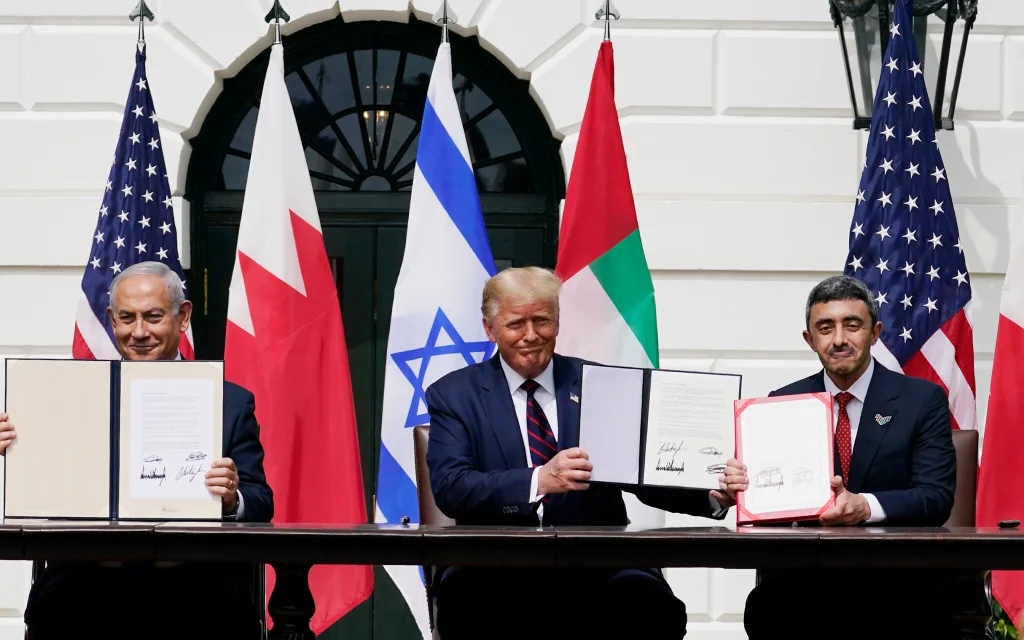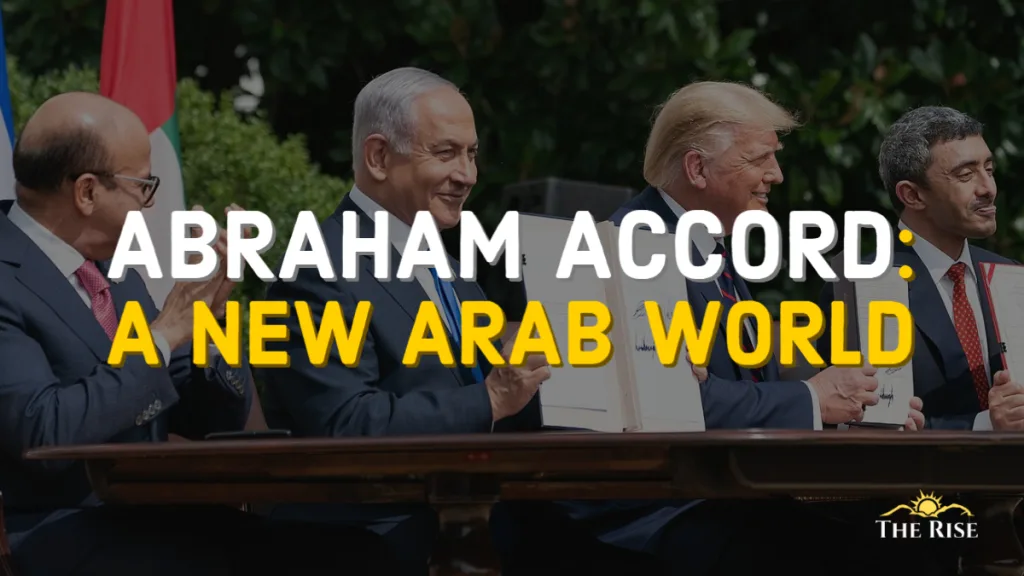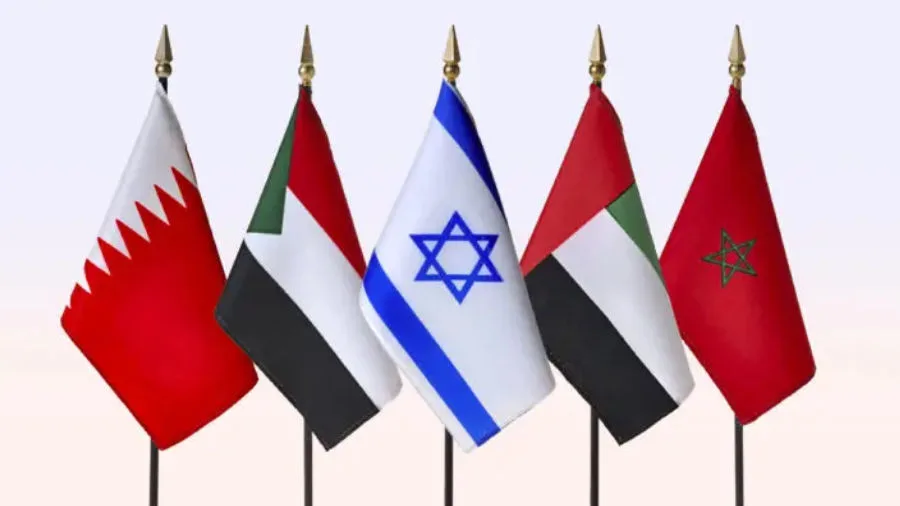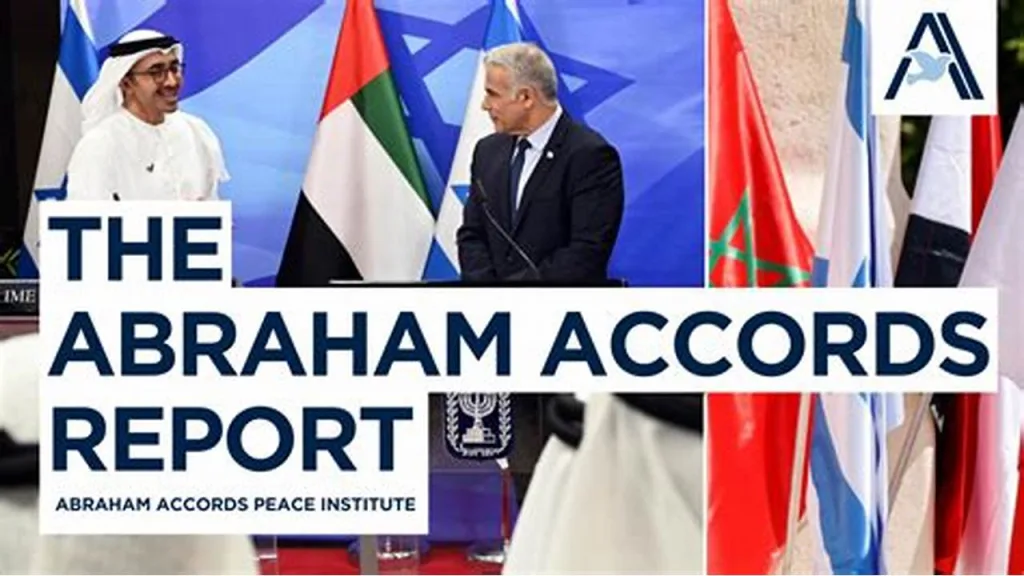In a landmark diplomatic achievement, the Abraham Accords have reshaped Middle East relations by establishing formal ties between Israel and several Arab nations. Mediated by the United States, the agreements were officially signed on September 15, 2020, marking a historic shift in regional dynamics.
Understanding the Abraham Accords
The Abraham Accords represent a series of agreements that fundamentally alter the geopolitical landscape of the Middle East. They are designed to normalize diplomatic and economic relations between Israel and Arab nations, breaking away from decades of tension and hostility. Named after the prophet Abraham, a revered figure in Judaism, Islam, and Christianity, the accords emphasize a shared religious and historical heritage between the signatory nations.
The accords are built on principles of mutual recognition, cooperation, and the pursuit of regional stability. By fostering diplomatic ties, the agreements aim to promote peace, economic development, and security collaboration, benefiting both Israel and its newly allied Arab states.

New Alliances in the Middle East
Under the accords, Israel has forged diplomatic relations with multiple Arab countries, ushering in a new era of political, economic, and security cooperation:
- United Arab Emirates (UAE): The UAE recognized Israel’s sovereignty, leading to full diplomatic relations and fostering collaboration in trade, technology, and defense.
- Bahrain: Bahrain formally established diplomatic ties with Israel, affirming its sovereignty and opening avenues for bilateral engagement.
- Morocco: Morocco agreed to normalize relations with Israel, a move accompanied by the United States recognizing Moroccan sovereignty over Western Sahara.
- Sudan: Sudan took steps toward normalization, securing the removal of its designation as a state sponsor of terrorism by the U.S.

Key Objectives of the Accords
The Abraham Accords were designed to achieve multiple diplomatic and economic goals, including:
- Promoting Peace and Stability: Encouraging dialogue and collaboration between Israel and Arab states to reduce regional tensions.
- Enhancing Economic Cooperation: Expanding trade, investment, and tourism among signatory nations, unlocking new financial opportunities.
- Strengthening Security Partnerships: Facilitating defense cooperation to address common security challenges across the Middle East.
Significance and Implications
The accords carry deep symbolic and strategic weight:
- Shared Heritage: Named after the prophet Abraham, a central figure in multiple religions, the accords highlight the common historical and cultural bonds between the signatory nations.
- U.S. Mediation: The United States played a pivotal role in brokering the agreements, with former President Donald Trump hosting the signing ceremony at the White House.
- Regional Reactions: While hailed as a diplomatic breakthrough, the accords have drawn criticism from some Arab nations and Palestinian groups, who argue that they do not adequately address the Israeli-Palestinian conflict.

A New Chapter for Middle Eastern Relations
Despite differing perspectives on the agreements, the Abraham Accords symbolize a move towards greater diplomatic engagement and economic collaboration in the region. Their long-term impact on Middle Eastern geopolitics remains an evolving story, shaping international alliances and fostering new opportunities for peace and cooperation.
The historical background of Ibraham Accords
The Abraham Accords were shaped by decades of geopolitical shifts, diplomatic efforts, and evolving regional alliances. Here are some key historical events that contributed to their formation:
1. The Madrid Peace Conference (1991)
The Madrid Peace Conference was a pivotal moment in Middle Eastern diplomacy, bringing together Israeli and Arab leaders for direct negotiations. It laid the groundwork for future peace agreements, including the Oslo Accords.
2. The Oslo Accords (1993 & 1995)
The Oslo Accords marked a significant step in Israeli Palestinian relations, establishing a framework for negotiations and limited Palestinian self-governance. While the accords did not lead to lasting peace, they set a precedent for diplomatic engagement.

3. Israel-Jordan Peace Treaty (1994)
Israel and Jordan signed a peace treaty in 1994, normalizing relations and establishing diplomatic and economic ties. This was the first peace agreement between Israel and an Arab country since Egypt’s treaty in 1979.
4. Israel’s Withdrawal from Gaza (2005)
In 2005, Israel unilaterally withdrew from the Gaza Strip, dismantling settlements and military presence. This move was intended to reduce tensions but ultimately led to Hamas taking control of Gaza in 2006.
5. Growing Regional Concerns Over Iran
Throughout the 2010s, Sunni Arab states and Israel found common ground in their concerns over Iran’s regional influence and nuclear ambitions. This shared security interest fostered behind-the-scenes cooperation between Israel and Gulf nations.
6. Increasing Israeli-Arab Engagement (2016-2018)
By 2016, Israeli Arab diplomatic contacts became more frequent, with Arab media openly discussing meetings between Israeli and Arab officials. In 2018, Israeli Prime Minister Benjamin Netanyahu visited Oman, signaling a shift in regional attitudes.

7. U.S. Mediation and Strategic Interests
The United States, under President Donald Trump, played a crucial role in brokering the Abraham Accords. The U.S. leveraged diplomatic incentives, including economic deals and security assurances, to encourage normalization.
8. Official Announcements and Signing (2020)
The first agreement between Israel and the UAE was announced on August 13, 2020, followed by Israel and Bahrain on September 11, 2020. The accords were officially signed at the White House on September 15, 2020, marking a historic shift in Middle Eastern diplomacy.
These events collectively paved the way for the Abraham Accords, fostering new alliances and reshaping regional dynamics. Would you like more details on any specific event?
